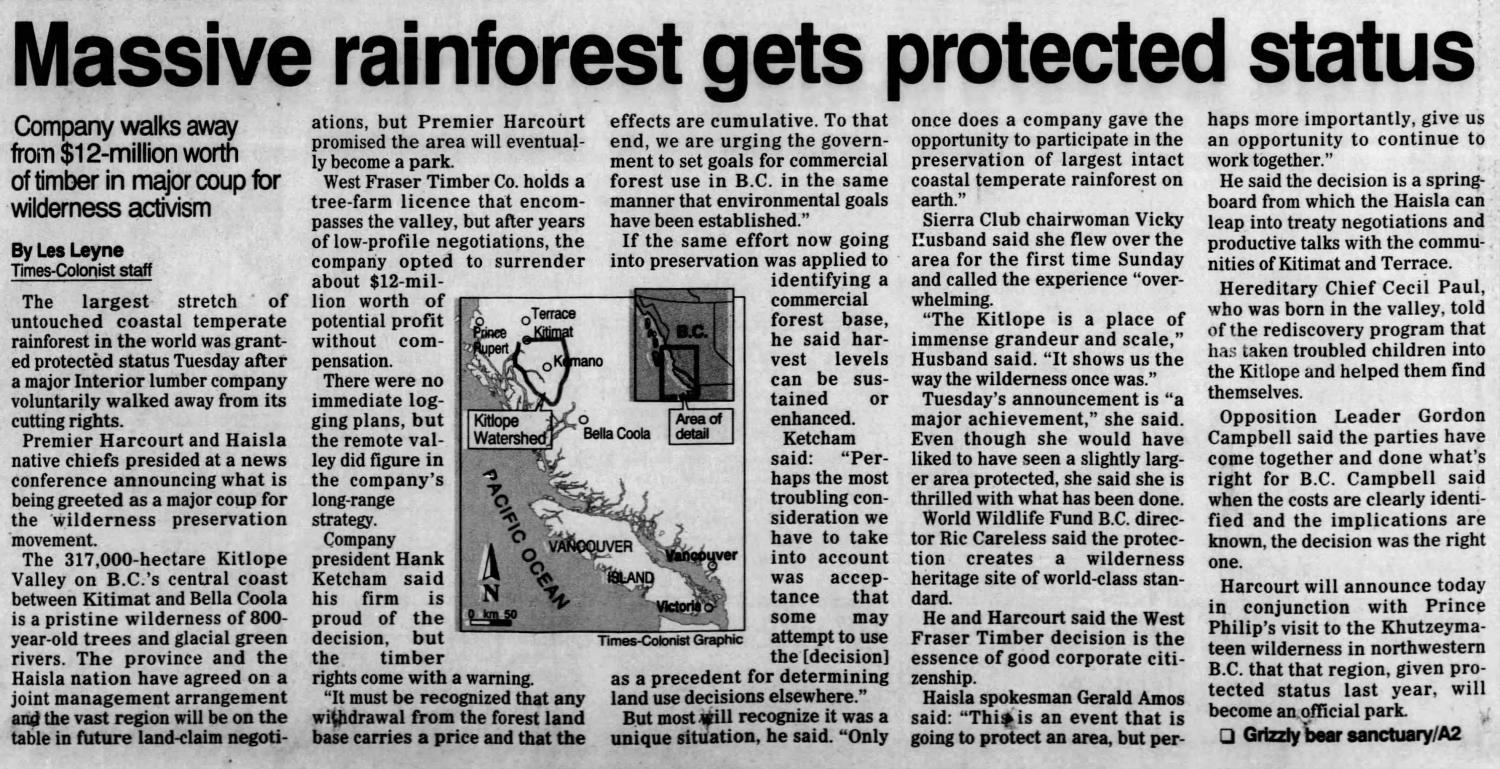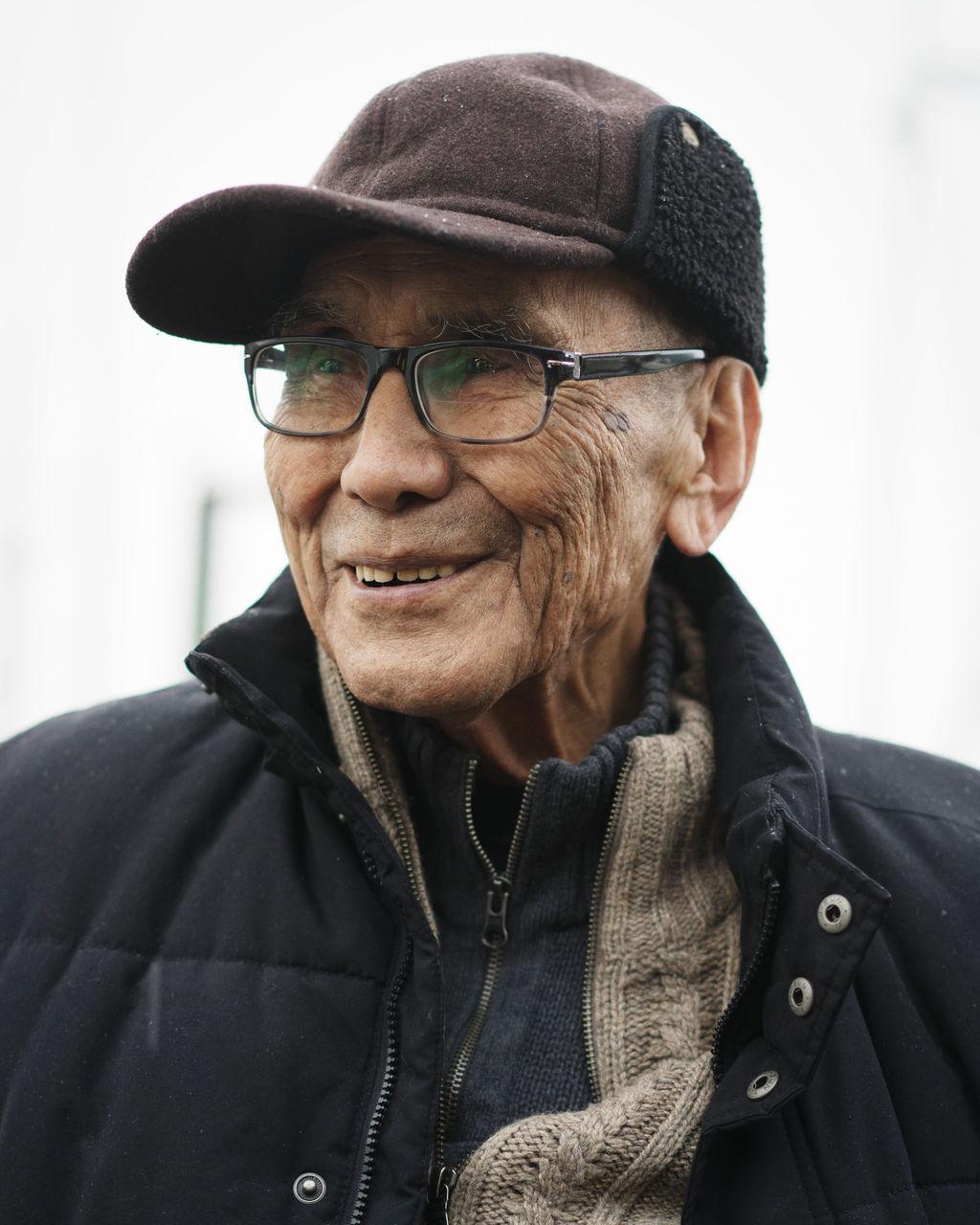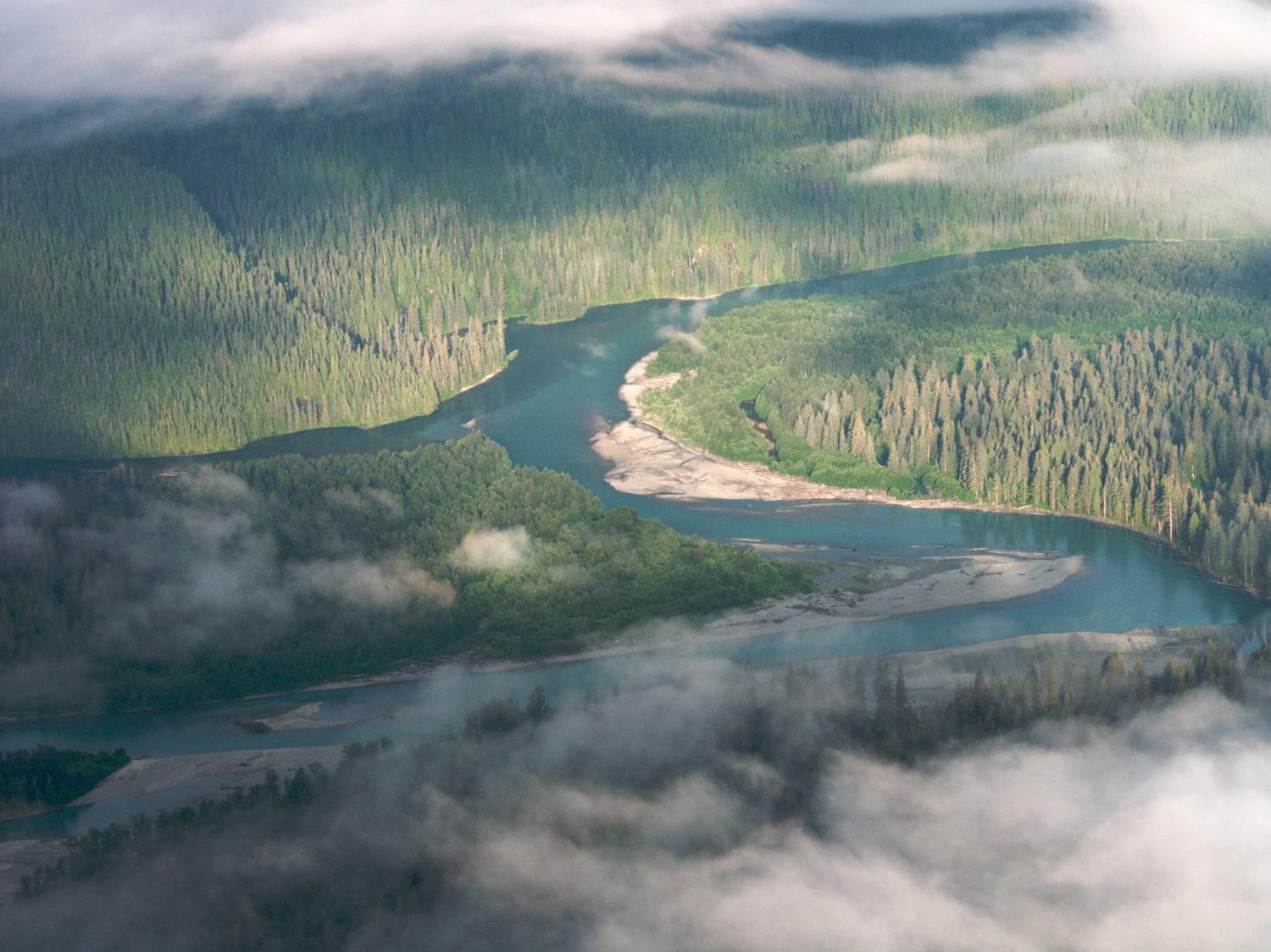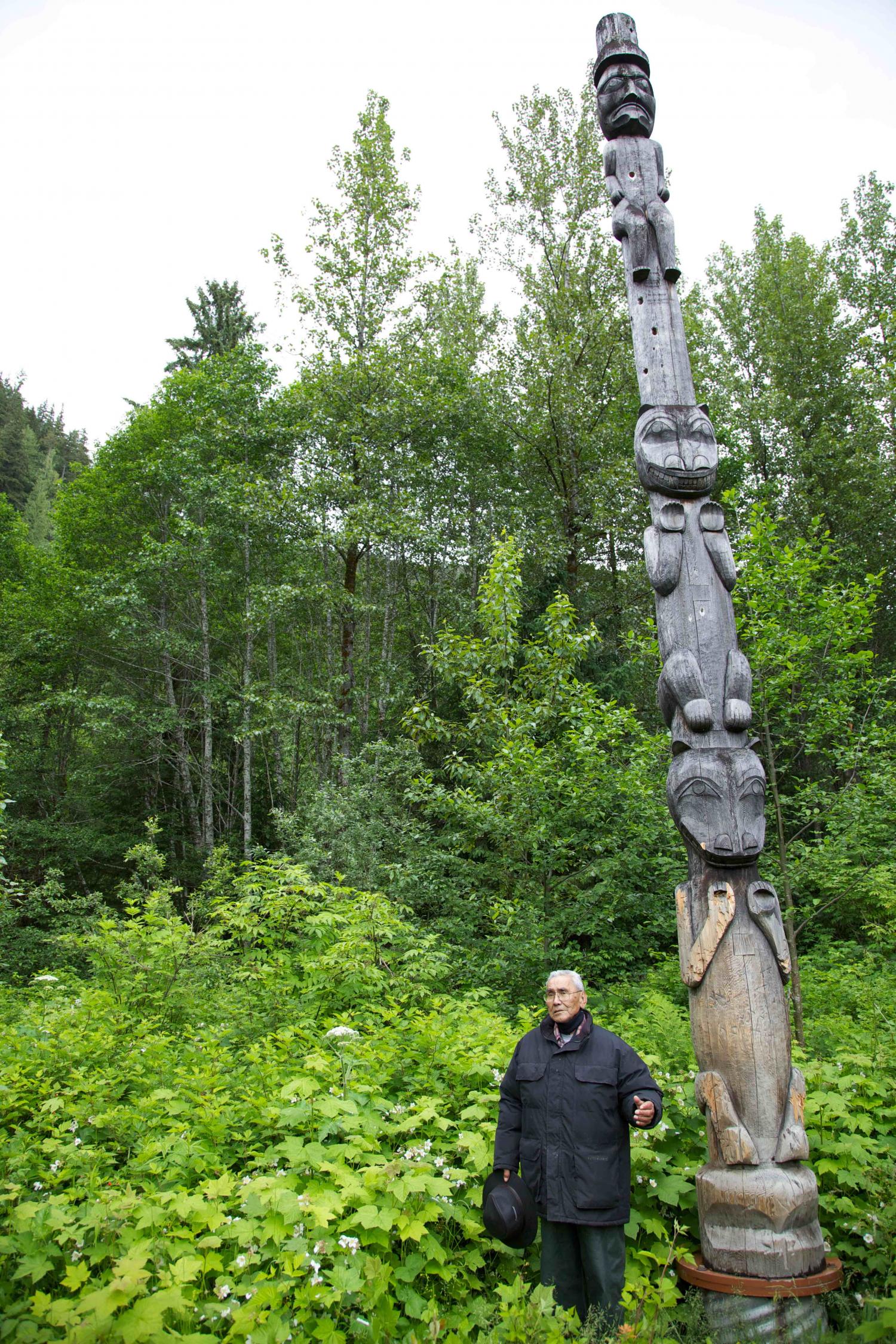Cecil Paul’s Magic Canoe
A Haisla man’s powerful story spawns a movement to protect old-growth forest on B.C.'s north coast
Date: 1994
Cecil Paul was born in 1931 on the banks of the Kitlope River. His Henaaksiala name was Wa’xaid, meaning ‘Good River.’ Paul had an idyllic childhood in the Kitlope Valley, a vast enclave of the Great Bear Rainforest about 100 kilometres southeast of Kitimat. But that came to a sudden end at the age of ten when he was forcibly sent to a residential school in Port Alberni. Like many residential school survivors, he endured overwhelming abuse that resulted in decades of painful trauma.
Then one day, years into adulthood, Paul had a vision of his deceased grandmother. She challenged him to reckon with his identity and his life’s purpose. A renewed Paul gave up drinking and went home to the valley his Henaaksiala ancestors had lived in for millennia. On his ancestral land, he embraced the teachings of his Elders and bathed himself in the Kitlope River. Finally, he started to feel at peace.
One day while fishing on the Kitlope, Paul noticed some surveyor tape that indicated the valley — which the Henaaksiala call Huchsduwachsdu Nuyem Jees, ‘the land of milky blue waters and the sacred stories contained in this place’ — would soon be logged. Trees up to 800 years old and more than ten feet in diameter could be lost. Paul resolved to save his homeland and the thousand years of Henaaksiala culture and history therein — village sites, culturally modified trees (CMTs), old grease trails once used for trade with faraway tribes.
But first, he had to convince his community that defending their heritage was more important than new jobs and money. Once again, Paul’s grandmother guided him. She urged him to build a “magic canoe,” one able to hold whoever would like to join Paul in ‘paddling’ to save the Kitlope Valley. “The currents against it are very strong but I believe we can reach that destination, and this is the reason for our survival,” Paul would say.
“I was alone in a canoe,” he later recalled. But his tale eventually captured the imagination of many, including a Portland-based environmental organization called EcoTrust. Together with the Haisla — an amalgamation of the Henaaksiala and Kitamaat peoples — EcoTrust began lobbying the provincial government and West Fraser Timber, the company with a licence to log the watershed. Their efforts paid off. On Aug. 16, 1994, Premier Mike Harcourt announced the Kitlope Valley would be permanently protected. West Fraser had made the unprecedented decision to voluntarily give up its licence to log nearly 800,000 acres of land, more than half the size of Prince Edward Island, without compensation. Two years later, the Kitlope was officially designated a protected area under joint management between B.C. and the Haisla Nation.
When Paul spoke of survival, he wasn’t just talking about saving a vital ecosystem. “You think it’s a victory because we saved the land,” Paul later explained. “But what we really saved is our heritage — our stories which are embedded in this place and which couldn’t survive without it, and which contain all our wisdom for living.”
Paul passed away on Dec. 3, 2020, at the age of 90. The Kitlope Heritage Conservancy is the largest swath of protected and unlogged temperate rainforest on Earth.
Sources:
- Falconer, Brian. "Back to the Kitlope." Raincoast Conservation Foundation, 21 May 2019, https://www.raincoast.org/2019/05/back-to-the-kitlope/.
- Gill, Ian. "‘I Was Alone in a Canoe. But It Was a Magic Canoe.’" The Tyee, 4 Dec. 2020, https://thetyee.ca/Culture/2020/12/04/Magic-Canoe-Waxaid/.
- ---. "‘The Magic Canoe.’" The Tyee, 15 June 2013, http://thetyee.ca/Life/2013/06/15/The-Magic-Canoe/.
- Hill, Julia. "The Kitlope Heritage Conservancy." Royal BC Museum, https://royalbcmuseum.bc.ca/exhibits/living-landscapes/northwest/kitlop_stories/heritage.htm. Accessed 7 May 2021.
- Leyne, Les. "Massive Rainforest Gets Protected Status." Times Colonist, 17 Aug. 1994, p. A1.
- Nagel, Jeff. "Surrendering the Kitlope Valley." Lake District News, 24 Aug. 1994, p. B6.
- Paul, Cecil. Stories from the Magic Canoe of Wa’xaid. Rocky Mountain Books Incorporated, 2020.
- Penn, Briony. Following the Good River. Rocky Mountain Books Incorporated, 2019.
- ---. "Stories from the Magic Canoe of Wa’xaid." Raincoast Conservation Foundation, 15 July 2019, https://www.raincoast.org/2019/07/stories-from-the-magic-canoe-of-waxaid/.
- Simmons, Matt. "‘Hero of the Planet’: Remembering the Life and Legacy of Wa’xaid Cecil Paul." The Narwhal, 12 Dec. 2020, https://thenarwhal.ca/waxaid-cecil-paul-kitlope-life-legacy/.





